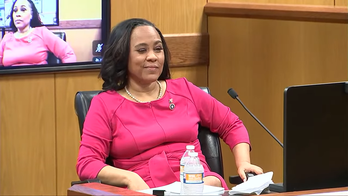Abortion: The House bill bars federal funding to pay for abortion coverage. The Senate bill allows people receiving federal subsidies to enroll in plans that cover abortions, angering pro-life Democrats in the House.
Costs: The House version costs $1.05 trillion, far more than the $871 billion Senate version. Both of the budget-busting bills are projected to reduce the deficit by over $100 billion, but those savings are based on massive cuts in Medicare that opponents say are double-counted.
Government-run plans: The House version creates a new national government-run insurance plan, but the so-called public option was killed from the Senate version during negotiations. The Senate plan instead offers national health exchanges -- private plans that are regulated by the government. Medicare expansion also covers more Americans under the House bill while the Senate draws on Medicaid to expand coverage.
Funding: The House version will draw on the wealthy to help fund public health insurance, levying surtaxes on anyone earning more than $500,000. The Senate version taxes imposes a 40 percent tax on every dollar above the $8,500 threshold for individual insurance premiums and $23,000 for families of four -- the so-called "Cadillac plans."
Mandates and penalties: In the House version, anyone who fails to buy health insurance faces a penalty of up to 2.5 percent of their income; in the Senate version, the penalty is up to $750 per adult and $2,250 per family, maxing out at 2 percent of income.
Illegal immigrants: The House version addresses illegal immigrants but refuses to grant them federal funds, allowing them to buy insurance on their own. The Senate bill denies illegal immigrants coverage even if they can pay for it themselves.
Affordability: The costs for individuals will vary by income bracket, but under the House version, people receiving subsidies would never be required to pay more than 9.8 percent of their income toward health insurance. That number jumps to 12 percent in the Senate version. And for some individuals not receiving government subsidies, the split is far steeper -- 6.6 percent of income in the House bill and 18.7 percent under the Senate bill.




